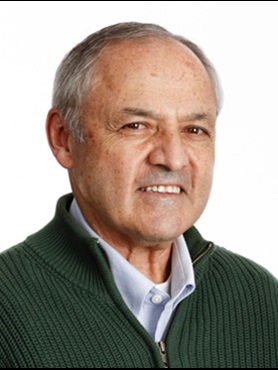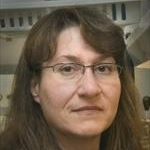Humanized Mouse Avatars for T1D
Contact PI: Dale Greiner, PhD, University of Massachusetts Medical School (UC4 DK104218)
Michael Brehm, PhD, Investigator, University of Massachusetts Medical School
Leonard Shultz, PhD, Investigator, The Jackson Laboratory
George Daley, MD, PhD, Investigator, Harvard University (10/2017 – present)
Douglas Melton, PhD, Investigator, Harvard University (9/2014 – 02/2022)
Rene Maehr, PhD, co-Investigator, University of Massachusetts Medical School
David Harlan, MD, co-Investigator, University of Massachusetts Medical School
Sally Kent, PhD, co-Investigator, University of Massachusetts Medical School
Start Date: September 30, 2019
End Date: December 31, 2025
Abstract
To date, studies of human type 1 diabetes (T1D) have failed to provide a mechanistic understanding of the underlying causes of the disease, largely because patients must be analyzed long after initiation of the autoimmune attack. Our ignorance of the key molecules and cells mediating the initiation and progression of human T1D may well underlie the paucity of significant new therapeutic interventions. This renewal proposal addresses the stated goal of RFA-DK-18-013 that “CMAI supports resource development projects that are primarily focused on the reagents and model systems needed for mechanistic study of human T1D.” Our Scientific Premise is that human T1D beta cells and immune cells transplanted into optimized immunodeficient mice (OPTI-MICE) will provide tractable model systems to study human T1D. We propose short term (Aim 1) and long term (Aim 2) goals. Aim 1 will develop an effector phase model of T1D in OPTI-MICE. Our team has already assembled the 3 key components that are required to develop an effector model of T1D: 1) Appropriate OPTI-MICE as recipients; 2) autoreactive T cells, lines, clones and iPS-derived T cells from T1D donors; 3) autologous human iPS cell-derived (SC)-b cells. We have developed NSG mice deficient in MHC class I and II that do not develop GVHD when engrafted with functional human T cells for this aim. We have also recruited Dr. Sally Kent, an expert in islet autoreactive T cell cloning, to provide T1D autoreactive T cell lines and clones from consented T1D patients. Aim 2 will reconstruct human T1D in OPTI-MICE using cells derived from T1D iPS cells. These iPS cells will be used to produce the three key cell types: hematopoietic stem cells (HSC) that will generate immune systems, thymic epithelial cells (TEC), and β-cells, all integral to the pathology of T1D. These cells will be derived through the use of directed differentiation and reprogramming strategies. We have been successful in generating functional human β cells from human control and T1D patient iPS cells, providing a standardized and reproducible source of β cells for our studies. We have successfully performed directed differentiation of human ES cells to generate HSCs, and will use similar approachs for directed differentiation of iPS cells into HSCs. Functional human TEC will also be generated using directed differentiation protocols similar to those used to achieve fully differentiated human β cells. Each cell type will be subjected to rigorous analysis in vitro and in vivo to ensure full functionality. Differentiated β-cells, TECs, and immune cells derived from T1D donors will be co-transplanted into OPTI-MICE specifically optimized to enhance T cell, SC-β cell, SC-HSC, and SC-TEC cell engraftment and function allowing reconstitution of an individual patient’s disease in an animal model. These new models of human diabetes will permit detailed observation, manipulation, and analysis of T1D, enabling us to determine the cells and antigens that initiate T1D, drive disease progression and mediate beta cell destruction. We have assembled an collaborative team of scientists that have the expertise required to accomplish this project.
Meet the Grant Team
Investigators |
|
Dale Greiner, PhDInvestigator |
Michael Brehm, PhDInvestigator |
Leonard Shultz, PhDInvestigator |
|
|
George Daley, MD, PhDInvestigator |
Douglas Melton, PhDInvestigator |
Sally Kent, PhDInvestigator |
|
Co-Investigators |
|
Rene Maehr, PhDCo-Investigator
|
David Harlan, MDCo-Investigator
|
|
Publications
- The antigen presentation landscape of cytokine-stressed human pancreatic islets
- Closing the Gap Between Vision and Victory in Type 1 Diabetes: The NIDDK Human Islet Research Network (HIRN) Initiative
- Maturation and persistence of CAR T cells derived from human pluripotent stem cells via chemical inhibition of G9a/GLP
- Interruption of glucagon signaling augments islet non-alpha cell proliferation in SLC7A2- and mTOR-dependent manners
- Human insulin as both antigen and protector in type 1 diabetes
- CD4+ T Cells From Individuals With Type 1 Diabetes Respond to a Novel Class of Deamidated Peptides Formed in Pancreatic Islets
- Genetic risk converges on regulatory networks mediating early type 2 diabetes
- Generation and molecular characterization of human pluripotent stem cell-derived pharyngeal foregut endoderm
- Interferon-α promotes neo-antigen formation and preferential HLA-B-restricted antigen presentation in pancreatic β-cells
- The beta cell-immune cell interface in type 1 diabetes (T1D)
- Generation of the NeoThy mouse model for human immune system studies
- Identification of a humanized mouse model for functional testing of immune-mediated biomaterial foreign body response
- Simultaneous evaluation of treatment efficacy and toxicity for bispecific T-cell engager therapeutics in a humanized mouse model
- Human Hematopoietic Stem Cell Engrafted IL-15 Transgenic NSG Mice Support Robust NK Cell Responses and Sustained HIV-1 Infection
- NOD-scid IL2rγnull mice lacking TLR4 support human immune system development and the study of human-specific innate immunity
- Humanized mouse models for immuno-oncology research
- Enhanced development of functional human NK cells in NOD-scid-IL2rg(null) mice expressing human IL15
- EZH1 repression generates mature iPSC-derived CAR T cells with enhanced antitumor activity
- Integration of single-cell transcriptomes and chromatin landscapes reveals regulatory programs driving pharyngeal organ development
- The Noble and Often Nobel Role Played by Insulin-Focused Research in Modern Medicine
- RFX6-mediated dysregulation defines human β cell dysfunction in early type 2 diabetes
- Modeling human T1D-associated autoimmune processes
- Role of MicroRNA in Inflammatory Bowel Disease: Clinical Evidence and the Development of Preclinical Animal Models
- A therapeutic convection-enhanced macroencapsulation device for enhancing β cell viability and insulin secretion
- A rapid, sensitive, and reproducible in vivo PBMC humanized murine model for determining therapeutic-related cytokine release syndrome
- Modeling Type 1 Diabetes In Vitro Using Human Pluripotent Stem Cells
- Understanding Normal and Malignant Human Hematopoiesis Using Next-Generation Humanized Mice
- Innovations, challenges, and minimal information for standardization of humanized mice
- Dapagliflozin does not directly affect human α or β cells
- Differentiation of human pluripotent stem cells toward pharyngeal endoderm derivatives: Current status and potential
- A retrievable implant for the long-term encapsulation and survival of therapeutic xenogeneic cells
- Proteomic and Transcriptional Profiles of Human Stem Cell-Derived β Cells Following Enteroviral Challenge
- Tacrolimus- and sirolimus-induced human β cell dysfunction is reversible and preventable
- Recovery of viable endocrine-specific cells and transcriptomes from human pancreatic islet-engrafted mice
- Functional profiling of single CRISPR/Cas9-edited human long-term hematopoietic stem cells
- Mesenchymal stem cells: From regeneration to cancer
- Imaging mass spectrometry enables molecular profiling of mouse and human pancreatic tissue
- Inferring population dynamics from single-cell RNA-sequencing time series data
- Humanized mouse models of immunological diseases and precision medicine
- HLA Class II Antigen Processing and Presentation Pathway Components Demonstrated by Transcriptome and Protein Analyses of islet β-Cells from Donors with Type 1 Diabetes
- Human Anti-HIV-1 gp120 Monoclonal Antibodies with Neutralizing Activity Cloned from Humanized Mice Infected with HIV-1
- Cutting Edge: Early Attrition of Memory T Cells during Inflammation and Costimulation Blockade Is Regulated Concurrently by Proapoptotic Proteins Fas and Bim
- Ectonucleoside Triphosphate Diphosphohydrolase-3 Antibody Targets Adult Human Pancreatic β Cells for In Vitro and In Vivo Analysis
- Alginate encapsulation as long-term immune protection of allogeneic pancreatic islet cells transplanted into the omental bursa of macaques
- Lack of acute xenogeneic graft- versus-host disease, but retention of T-cell function following engraftment of human peripheral blood mononuclear cells in NSG mice deficient in MHC class I and II expression
- A Single-Cell Transcriptomic Atlas of Thymus Organogenesis Resolves Cell Types and Developmental Maturation
- Distinct human α(1,3)-fucosyltransferases drive Lewis-X/sialyl Lewis-X assembly in human cells
- Ectopic expression of RAD52 and dn53BP1 improves homology-directed repair during CRISPR-Cas9 genome editing
- Age-dependent human β cell proliferation induced by glucagon-like peptide 1 and calcineurin signaling
- Coxsackievirus-Induced Proteomic Alterations in Primary Human Islets Provide Insights for the Etiology of Diabetes
- Alloimmune Responses of Humanized Mice to Human Pluripotent Stem Cell Therapeutics
- Gene Therapy with an Adeno-Associated Viral Vector Expressing Human Interleukin-2 Alters Immune System Homeostasis in Humanized Mice
- ZFP521 regulates murine hematopoietic stem cell function and facilitates MLL-AF9 leukemogenesis in mouse and human cells
- Possible type 1 diabetes risk prediction: Using ultrasound imaging to assess pancreas inflammation in the inducible autoimmune diabetes BBDR model
- mRNA-mediated glycoengineering ameliorates deficient homing of human stem cell-derived hematopoietic progenitors
- A novel hemolytic complement-sufficient NSG mouse model supports studies of complement-mediated antitumor activity in vivo
- Development of Humanized Mice in the Age of Genome Editing
- Colony stimulating factor-1 receptor is a central component of the foreign body response to biomaterial implants in rodents and non-human primates
- Humanized mouse models of clinical disease
- End Sequence Analysis Toolkit (ESAT) expands the extractable information from single-cell RNA-seq data
- Glycoengineering of E-Selectin Ligands by Intracellular versus Extracellular Fucosylation Differentially Affects Osteotropism of Human Mesenchymal Stem Cells
- Cell-Extrinsic MHC Class I Molecule Engagement Augments Human NK Cell Education Programmed by Cell-Intrinsic MHC Class I
- Mutant IDH1 Downregulates ATM and Alters DNA Repair and Sensitivity to DNA Damage Independent of TET2
- Genetically modified human CD4(+) T cells can be evaluated in vivo without lethal graft-versus-host disease
- DNA Damage and Aging Around the Clock
- Loss-of-function mutations in the C9ORF72 mouse ortholog cause fatal autoimmune disease
- Stress-impaired transcription factor expression and insulin secretion in transplanted human islets
- Mitotic History Reveals Distinct Stem Cell Populations and Their Contributions to Hematopoiesis
- Long-term glycemic control using polymer-encapsulated human stem cell-derived beta cells in immune-competent mice
- Genetic Ablation of Lymphocytes and Cytokine Signaling in nonobese Diabetic Mice Prevents diet-induced Obesity and Insulin Resistance
- Generation of Immunodeficient Mice Bearing Human Immune Systems by the Engraftment of Hematopoietic Stem Cells
- Novel Observations From Next-Generation RNA Sequencing of Highly Purified Human Adult and Fetal Islet Cell Subsets
- Epigenetic Control of Stem Cell Potential during Homeostasis, Aging, and Disease
- Functional annotation of native enhancers with a Cas9-histone demethylase fusion
- Generation of functional human pancreatic β cells in vitro









